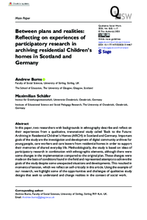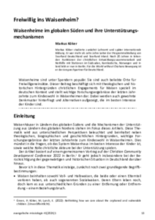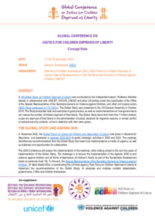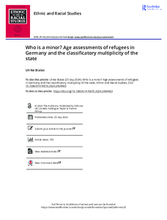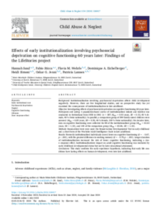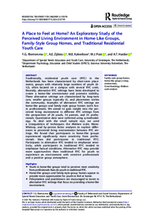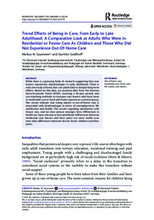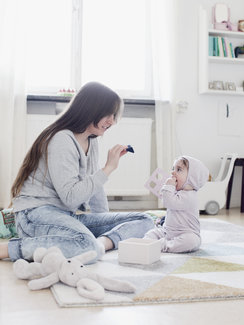

Displaying 11 - 20 of 423
In this paper, two researchers with backgrounds in ethnography describe and reflect on their experiences from a qualitative, transnational study called 'Back to the Future: Archiving in Residential Children's Homes (ARCH) in Scotland and Germany. Important goals of the study are the investigation and development of digital community archives for young people, care workers and care leavers from residential homes in order to support their memories of shared everyday life.
Dieser Beitrag beschäftigt sich mit theologischen und historischen Hintergründen christlichen Engagements für Waisen speziell im deutschen Kontext und stellt wichtige Forschungsergebnisse der letzten Jahrzehnte zum Kindeswohl in Waisenheimen dar. Dabei werden auch gewohnten Denkmuster hinterfragt und Alternativen aufgezeigt, die im besten Interesse der Kinder sind.
The Conference is designed as a two-day event, targeting key groups such as administration of justice, children deprived of liberty and professionals who work with them, children on the move, children in institutions and children detained in the context of armed conflict.
This study examined the categories that states use to classify and govern migrants. Unaccompanied minors and adult asylum seekers are treated very differently regarding their asylum cases and residence permits. The study focused on Germany, where the courts and youth welfare offices commission age assessments to decide whether young migrants will be considered minors or adults. These assessments are carried out by forensic medical examiners and social workers, respectively, who work with very different understandings of what constitutes age.
The purpose of this longitudinal study conducted on institutionalized infants and toddlers in Switzerland from 1958 to 1961 and then 60 years later on the same group, is to investigate the effects of psychosocial deprivation on cognitive functioning in late adulthood.
This study aimed to investigate developmental outcomes of children raised in institutions in Switzerland in conditions of psychosocial deprivation and to identify possible risk and protective factors at institutional and child levels.
The authors of this study aimed to gain insight into the perceived living environment in different residential youth care settings from the perspectives of 26 youth, 14 parents, and 35 professionals in the Netherlands.
This article addresses two issues: whether the inequalities faced by cared for children will persist in different stages of their lives and whether these inequalities are dependent on the specific out-of-home care setting, i.e. residential or foster care. The authors examine data from the German Socio-Economic Panel (SOEP), covering a 50-year period.
Police start to interview witnesses following Guardian reports on adoptions to the Netherlands nearly 50 years ago
Group climate in residential youth care is considered to be essential for treatment of youth and young adults. Various instruments exist to measure quality of living group climate, but some are lengthy, use complicated wording, which make them difficult to fill out by youth and individuals with a mild intellectual disability. The present study based in the Netherlands describes the development and rationale for the Group Climate Instrument—Revised (GCI-R).

